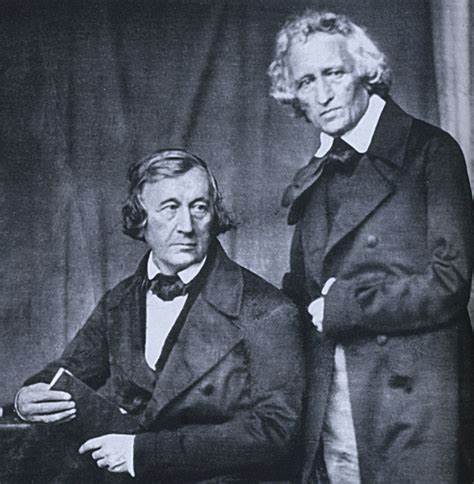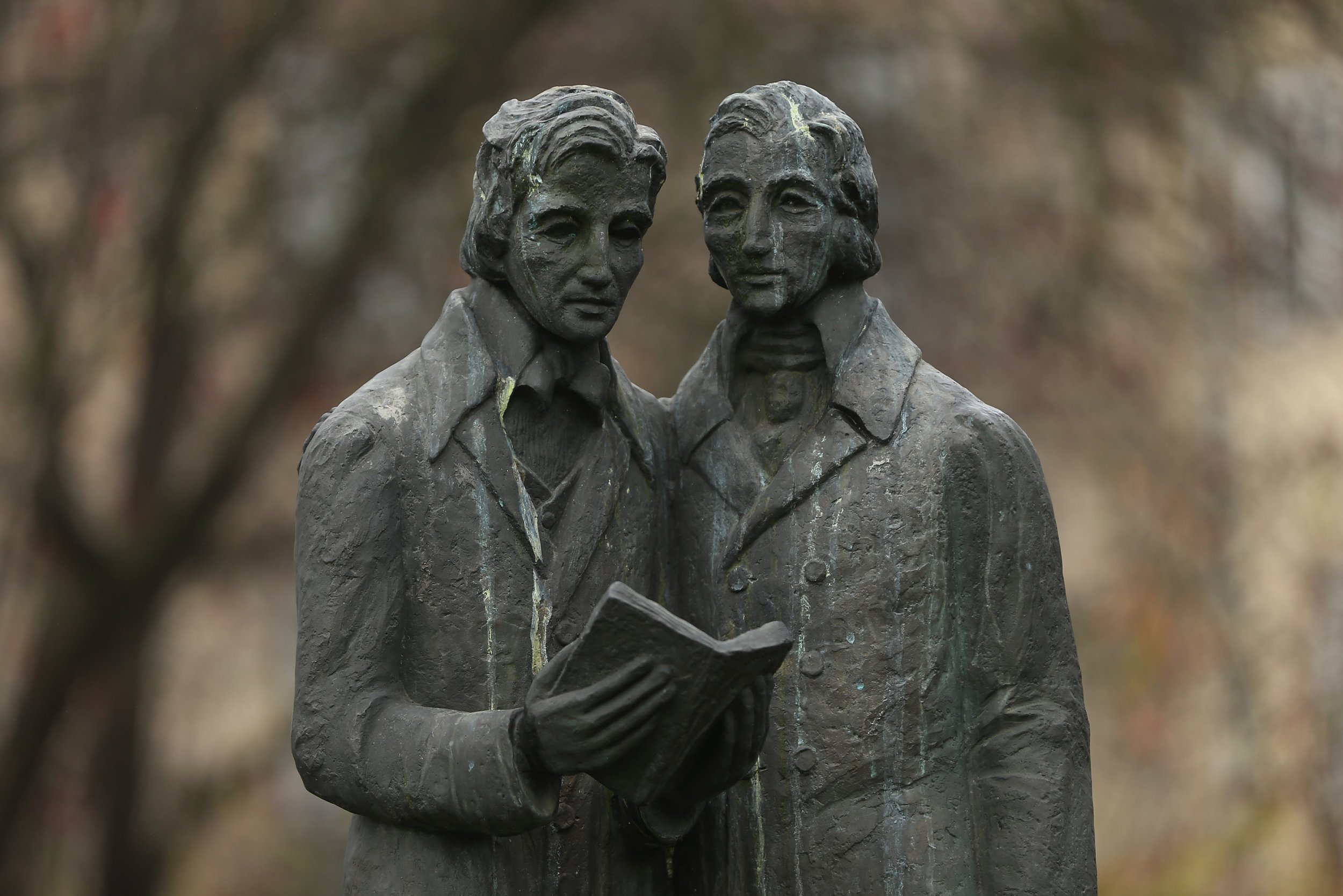Early Life
Jacob and Wilhelm Grimm were born in the town of Hanau, in the Landgraviate of Hesse-Kassel (present-day Germany), to Philipp Wilhelm Grimm, a lawyer, and Dorothea Grimm. They were the second and third of six children in the family. Tragedy struck early in their lives when their father passed away in 1796. The loss of their father significantly impacted their upbringing, and they were raised by their mother and a supportive family friend named Friedrich Savigny.
Education and Academic Pursuits
The brothers displayed remarkable academic talent from an early age. They attended the Friedrichsgymnasium in Kassel and later enrolled at the University of Marburg, where they pursued studies in law, philology, and ancient literature. During their time at the university, they developed a keen interest in language and literature, particularly focusing on ancient Germanic and Nordic myths and stories.
The Beginnings of a Literary Career
In 1806, Jacob and Wilhelm both worked as librarians at the Hessian state library in Kassel. Their work there allowed them access to a vast array of literary texts, including folktales and medieval manuscripts, which kindled their interest in collecting and preserving Germanic folklore.
The Birth of Fairy Tales Collection
In 1812, the brothers published their first collection of folk and fairy tales, titled "Children's and Household Tales" ("Kinder- und Hausmärchen"), which is commonly known as "Grimm's Fairy Tales." This initial collection contained 86 stories, including classics such as "Cinderella," "Snow White," "Hansel and Gretel," "Little Red Riding Hood," and "Rumpelstiltskin." The tales were not originally meant for children but were intended to preserve Germanic cultural heritage and traditions.
Contributions to Linguistics
Apart from their work in collecting folklore, the Grimms were also influential linguists. They published a groundbreaking book titled "Deutsche Grammatik" (German Grammar), which laid the foundation for modern German linguistics and played a significant role in standardizing the German language. Their work on the grammar and structure of the German language was pioneering and earned them respect in the academic community.
Academic Career and Recognition
In 1829, Jacob was appointed as a professor at the University of Göttingen, where he continued his research and academic pursuits. The Grimms' work on folklore and linguistics received increasing recognition, and they became leading figures in German intellectual circles.
Later Life and Legacy
Wilhelm married Henriette Dorothea Wild, and Jacob never married, dedicating himself entirely to his academic work. In 1837, they both moved to Berlin, where they became members of the Prussian Academy of Sciences.
Jacob Ludwig Carl Grimm passed away on September 20, 1863, and Wilhelm Carl Grimm followed on December 16, 1859. Their extensive work on folklore, fairy tales, and linguistics remains their most significant legacy. Today, their collection of fairy tales has been translated into numerous languages and remains a beloved and cherished part of global storytelling traditions.
Their influence extended far beyond folklore, and their linguistic contributions had a lasting impact on the study of German and other languages. The Brothers Grimm left a lasting mark on academia, literature, and popular culture, solidifying their place as two of the most influential figures in German intellectual history.

